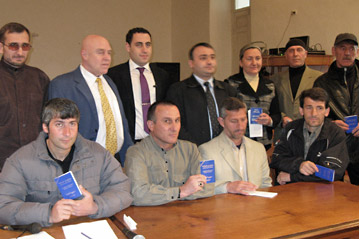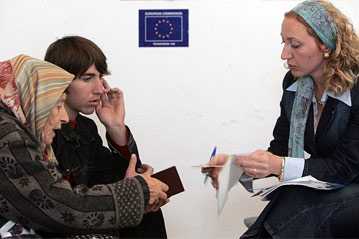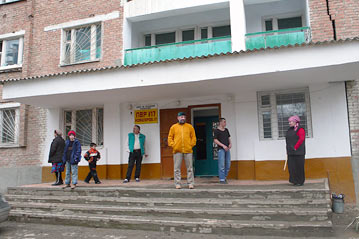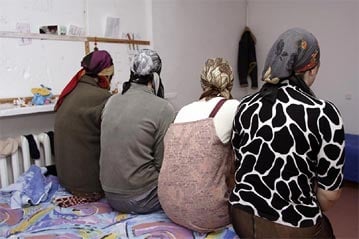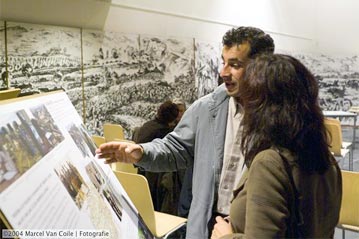Lubbers calls for political solution to conflict in Chechnya
Lubbers calls for political solution to conflict in Chechnya

High Commissioner Ruud Lubbers during a visit Wednesday to a camp for internally displaced Chechens.
MOSCOW, Jan. 17 (UNHCR) - The conflict in the war-torn Russian republic of Chechnya should be resolved through political means, High Commissioner Ruud Lubbers said during a visit to camps for internally displaced Chechens in Ingushetia.
"Humanitarian workers are doing everything they can but have only limited influence, which makes finding a political settlement all the more essential," Lubbers said referring to the 28-month-old conflict.
The High Commissioner, who met Thursday in Moscow with Interior Minister Boris Gryzlov and Emergency Minister Sergei Shoigu, said that the Chechen people have to be more involved in strengthening security in their republic.
"The process of building confidence which will encourage people to go home will need more attention in the current situation," Lubbers added.
The refugee agency advocates appropriate documentation and status for the displaced, which it says would give more options to those who cannot return to their homes for security reasons.
Asked if he thought the refugees could return to Chechnya safely at this time, he said each person would have to make that decision individually. "But we do understand that many of them don't find it safe enough in the current situation, and I do hope that the political process will prove to be more productive."
On Wednesday the High Commissioner visited the Sputnik camp, the oldest such facility in Ingushetia, created in 1999 with financial help from UNHCR and which currently holds 8,000 people. Lubbers also toured two other camps built last year that permitted the transfer of some 9,400 internally displaced persons who had been previously living in rail cars.
Lubbers said he was impressed by the hospitality of the Ingush host families who house the vast majority of the displaced Chechens. Many of the displaced Chechens are spending their third winter in Ingushetia, which borders Chechnya. Fifteen percent of the displaced are living in tent camps, 21 percent in so-called spontaneous settlements such as converted farm or industrial buildings, and the remaining 64 percent with host families or in private accommodations.


